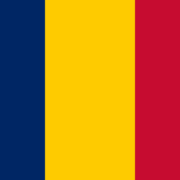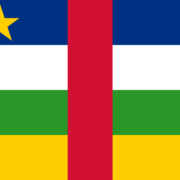Central Africa
Cameroon
Cameroon is a country lying at the junction of western and central Africa. Cameroon’s ethnically diverse population is among the most urban in western Africa.
Central Africa
Cameroon is a country lying at the junction of western and central Africa. Cameroon’s ethnically diverse population is among the most urban in western Africa.
Population: 28,608,000
Main Religion: Christianity, (60.7%), but Muslims dominate the North and Adamaoua Provinces
Christians: 17,647,000
Data source: Todd M. Johnson and Gina A. Zurlo, eds. , World Christian Database (Leiden/Boston: Brill, accessed March 2023)
Crisis relief and trauma care
Cameroon, country lying at the junction of western and central Africa. (Brittanica). The country’s name is derived from Rio dos Camarões (“River of Prawns”)—the name given to the Wouri River estuary by Portuguese explorers of the 15th and 16th centuries. Until the late 19th century, English usage confined the term “the Cameroons” to the mountains, while the estuary was called the Cameroons River or, locally, the Bay. In 1884 the Germans extended the word Kamerun to their entire protectorate, which largely corresponded to the present state. Cameroon’s ethnically diverse population is among the most urban in western Africa.
Cameroon is a Presidential Republic, led by the octogenarian Paul Biya, who has ruled the country since 1982 and are now serving his 7th term. Cameroon’s democracy is described as declining and although Christians have remained active in politics, they have complained about receding freedoms to engage. Cameroon is known for its restrictive freedom of the press and the expression. It was reported by RSF (World Press Freedom 2023 Cameroon):
“Although Cameroon has one of the richest media landscapes in Africa, it is one of the continent’s most dangerous countries for journalists, who operate in a hostile and precarious environment.”
The situation in Cameroon is becoming increasingly perilous for Christians, particularly in the northern regions, where radicalization is escalating among significant Muslim populations. Conversion from Islam to Christianity is fraught with extreme danger. Owning Christian literature, like Bibles, can elicit threats and even violence, forcing many converts to practice their faith clandestinely. Female converts are especially vulnerable, often subjected to coercive marriages to non-Christians.
Added to the precariousness is the looming presence of Boko Haram, which disproportionately threatens Christian women with the risk of abduction. Furthermore, church activities are being heavily disrupted, not only by Boko Haram but also by armed separatist groups and the government itself.
In the North West and South West regions, these groups have been targeting communities that are predominantly Christian. As a result, churches have become collateral damage. Churches have been set on fire and church leaders and seminary students kidnapped, as corroborated by reports from the US State Department (IRFR 2022 Cameroon). Armed groups often occupy churches, turning sacred spaces into arenas of conflict. Moreover, the government is also suppressing anyone who dares speak out against injustice, including Christians.
Church leaders who voice opposition to systemic unfairness find themselves silenced, either through intimidation or more overt forms of repression, effectively stymieing any form of dissent within religious circles.
Any religious groups that do not openly support the government face violations. In areas where Christians are the majority, Muslims are ostracised because the community sees them as likely Boko Haram sympathisers.

 Central African Republic
Central African Republic